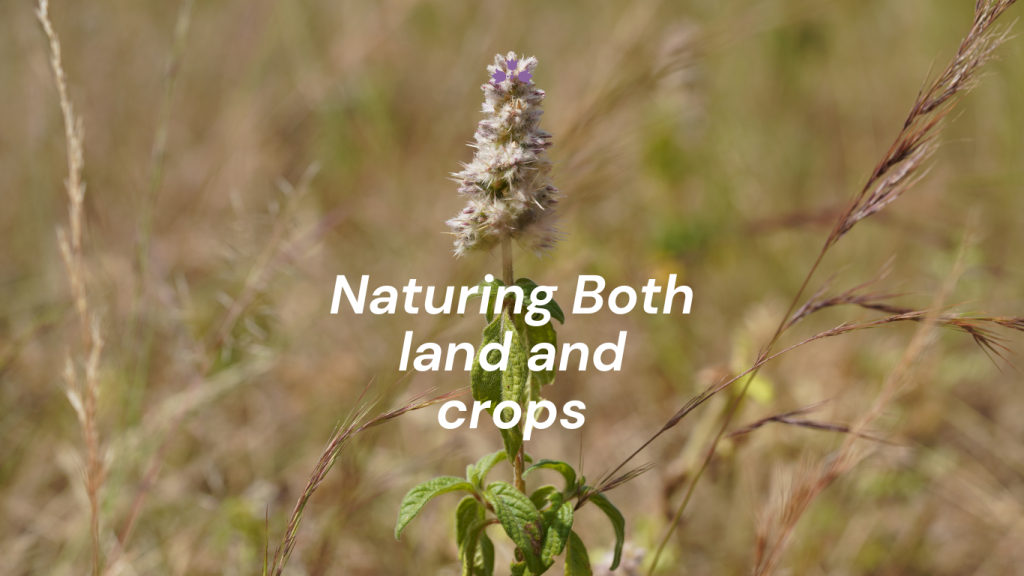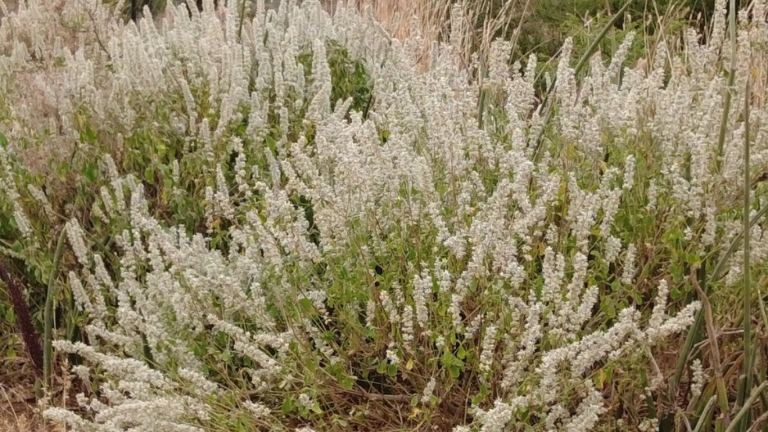
At Ambokili, we’re passionate about nurturing land, not just crops. Our goal is to have a verdant tapestry woven across the Farm, not just during harvest, but throughout the year. Thus, we practice cover cropping. But what exactly is cover cropping, and why did Ambokili Farm consider it to be one of its agricultural endeavours?
This sustainable practice involves strategically planting crops like legumes, grasses, or a mix of both, to shield and enrich the soil during periods when primary crops are absent. It mimics nature’s wisdom to shield the soil. Cover crops are green shields that protect the land from harsh elements like erosion and weeds. Instead of leaving land bare and vulnerable, we introduced diverse mixes of legumes, grasses, or both.
These “cover crops” provided a range of advantages, such as:
Preventing soil erosion: With gullies as deep as 2 metres on the Farm, it was not enough to restore the land, we needed to reduce exposure to agents of erosion. Bare soil is exposed to agents of erosion e.g. wind and water, leading to topsoil loss and nutrient depletion. Crop cover like the Vetiver grass we grew, acted as a resilient barrier, anchoring the soil and safeguarding the soil’s nutrients.
Fertility: The Mucuna beans adapted well to the semi-arid climate of Kimana where Ambokili Farm is located and acted as a very beneficial cover crop. Legumes as cover crops perform a magical feat – nitrogen fixation. They capture atmospheric nitrogen and convert it into a form readily usable by your main crops, promoting long-term fertility naturally. Ambokili
Moisture conservers: Kimana’s yearly temperature is 20.54ºC (68.97ºF) and it is -1.96% lower than Kenya’s averages. Kimana typically receives about 96.83 millimetres (3.81 inches) of precipitation and has 181.11 rainy days (49.62% of the time) annually. Thus, it is important that we protect the soil’s moisture. Crop cover helps regulate soil moisture. It casts a shade, minimising evaporation, and enhances water infiltration when it rains, ensuring our crops have access to the moisture they need.
Biodiversity Champions: A healthy soil ecosystem is a diverse one. Crop cover becomes a habitat for beneficial insects, earthworms, and other soil life, promoting natural pest control and fostering a thriving biological community within the soil.
Nutrient preservers: Conventional farming practices earlier practised on the land had depleted soil nutrients over time. Our cover crops, particularly the Mucuna beans, fix atmospheric nitrogen, enriching the soil naturally.
Our Experiential Evidence with Cover Cropping:
We’ve witnessed the dramatic impact of crop cover firsthand. When we started in 2022, the land was bare with gulleys as deep as 2m and extensive sheet erosion. By integrating cover cropping with our no-tillage practices, we minimise soil disturbance, allowing organic matter to accumulate and soil structure to improve. This has resulted in:
Enhanced Yields: Improved nutrients cycling has led to healthier soil. Healthier soil leads to healthier crops! We’ve observed significant increases in crop yields and overall plant vigour.
Reduced Costs: The natural fertility boost from cover crops has enabled us to practice organic farming where we do not use chemical inputs, saving us money and resources.
Sustainable Legacy: Crop cover aligns perfectly with our commitment to sustainable farming. It conserves water, reduces erosion, and promotes biodiversity, contributing to a healthier planet and enriching our own farm ecosystem.
Increase in Biodiversity: Our cover crops have created a habitat for beneficial insects, earthworms, and other soil life, enhancing natural pest control and promoting a healthy soil microbiome.
Contribution to Soil Health Conservation:
Crop cover plays a vital role in conserving soil health by mitigating erosion, improving soil fertility, and fostering a diverse and resilient agroecosystem. Through its implementation, organic farmers, like Ambokili Farm, can reduce their environmental footprint.
By covering land with these green shields, we can protect our soils, promote biodiversity, create sustainability and ensure food security for generations to come. Let’s cultivate a healthier future, one cover crop at a time.

